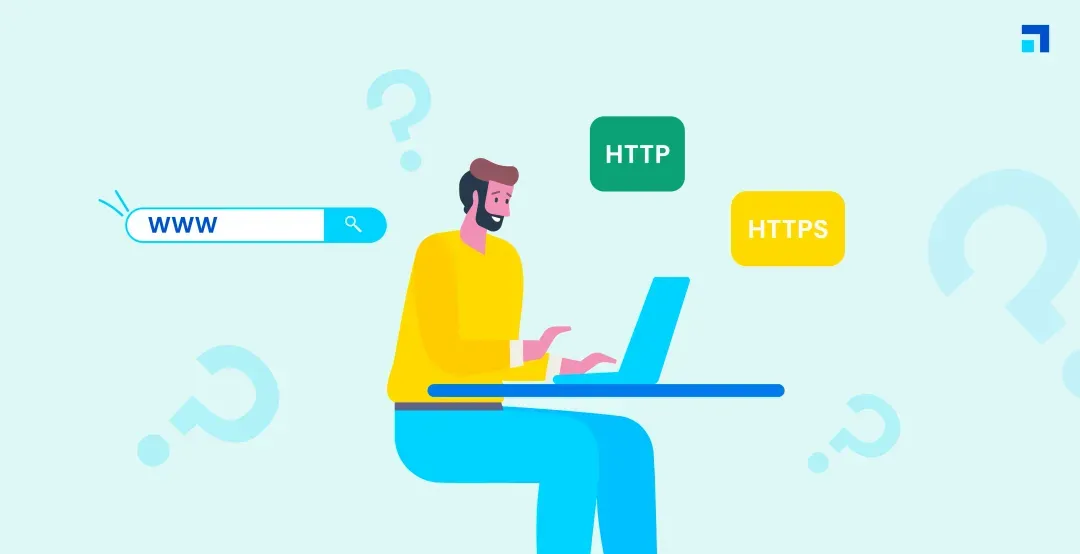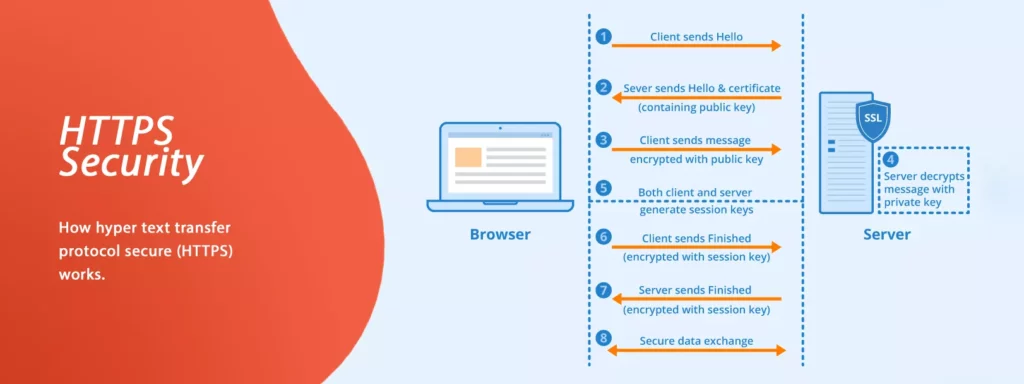HTTPS: Powerful Actions to Skyrocket Your SEO Performance in 2025
In the fast-paced digital landscape, websites must balance security, user trust, and SEO performance to stay competitive. A critical factor in achieving this is the transition from HTTP to HTTPS Beyond its primary purpose of securing communication, HTTPS significantly affects SEO rankings, organic traffic, and overall search results.
What is HTTPS, and Why Does It Matter?
HTTPS stands for Hypertext Transfer Protocol Secure. It is an upgraded version of HTTP that encrypts the connection between a user’s browser and the webpage they’re visiting. This is essential for indexed content to meet modern security and relevance standards.
The encryption is achieved using SSL (Secure Sockets Layer) or TLS (Transport Layer Security). This ensures that sensitive information like login credentials, credit card details, and personal data remains private. For businesses, it also means better click-through rates (CTR), as users trust secure websites over non-secure ones.
HTTPS also directly impacts SEO through factors like anchor text, sitemaps, and meta tags, helping webmasters and SEO companies optimize for search queries and stay competitive in local SEO and broader markets.
HTTP vs. HTTPS: Key Differences
While HTTP and HTTPS serve the same basic purpose of enabling communication between browsers and websites, there are crucial differences that make HTTPS the better choice for SEO and user experience.
Security:
HTTPS encrypts data, preventing malicious attacks such as black-hat SEO practices and protecting users from duplicate phishing attempts.
SEO Impact:
Using HTTPS enhances your search marketing strategy. It ensures your website can be effectively crawled by robots, improving its indexed status and overall pagerank.
User Trust and Experience:
HTTPS reassures visitors through a padlock in the browser meta tags, which increases engagement, builds domain authority, and reduces bounce rates.
Performance:
Modern HTTPS protocols, such as HTTP/2, improve site speed and enhance queries handling. Faster sites with accurate title tags and strong on-page SEO rank better in search results.
Why HTTPS Impacts SEO Rankings
HTTPS as a Google Ranking Factor
Google announced in 2014 that HTTPS would be a ranking signal in its algorithm. While it’s a minor factor compared to others like backlink quality or relevancy of search queries, it can still make a difference. Switching to HTTPS aligns your site with Google’s expectations, making it a priority in searchers’ niche results.
Enhanced Security Leads to Better Rankings
Search engines favor websites that offer secure, user-friendly experiences. HTTPS improves relevance for users and ensures smooth crawling by search engine robots, directly benefiting search rankings.
HTTPS Reduces Bounce Rates
Websites using HTTPS avoid warnings like « Not Secure, » which drives users away. Instead, they achieve higher click-through rates and stay relevant to search marketing goals.
How HTTPS Enhances Traffic
HTTPS Builds User Trust
Trust is a cornerstone of driving traffic to your website. Secure sites encourage searchers to interact, whether through forms, purchases, or clicks on directories. Improved trust directly impacts search results and boosts pay-per-click (PPC) efficiency.
HTTPS Improves Referral Traffic
Platforms like social media and other secure sites often restrict referrals to HTTP sites. HTTPS ensures your link building efforts remain effective and supports your local SEO campaigns.
Higher Conversion Rates with HTTPS
Visitors feel more comfortable sharing information on HTTPS sites, resulting in increased engagement and sales. This boosts domain authority and contributes to better search engine marketing (SEM).
/List
Common Misconceptions About HTTPS
Does HTTPS Guarantee Top SEO Rankings?
While HTTPS is a ranking factor, it doesn’t override the need for robust SEO strategies. You’ll still need optimized anchor text, effective link building, directories, and quality backlinks to achieve top search rankings.
Will HTTPS Slow Down My Website?
Some fear that HTTPS may slow down their site due to encryption. However, modern protocols like HTTP/2 enhance speed, keeping searchers satisfied and improving click-through rates.
The Long-Term Benefits of HTTPS
Why HTTPS is Essential for Future-Proofing Your Website
As cybersecurity threats increase and search engines prioritize secure sites, HTTPS is no longer optional. Sites that integrate HTTPS enjoy better indexed results, higher relevance, and enhanced engagement.
The Cost of Ignoring HTTPS
Websites without HTTPS risk losing pagerank and visibility. They may face penalties for duplicate content, low CTR, and reduced relevance in local SEO.
Conclusion
In today’s digital landscape, HTTPS is more than just a security protocol—it’s essential for search engine optimization (SEO) success. By adopting HTTPS, you ensure a better user experience, improved search marketing outcomes, and a competitive edge in your niche.
Switching to HTTPS is an investment in the future, enhancing queries, reducing bounce rates, and boosting click-through rates. With strong link building strategies and optimized content, HTTPS provides a foundation for long-term success in search results and pay-per-click campaigns.



